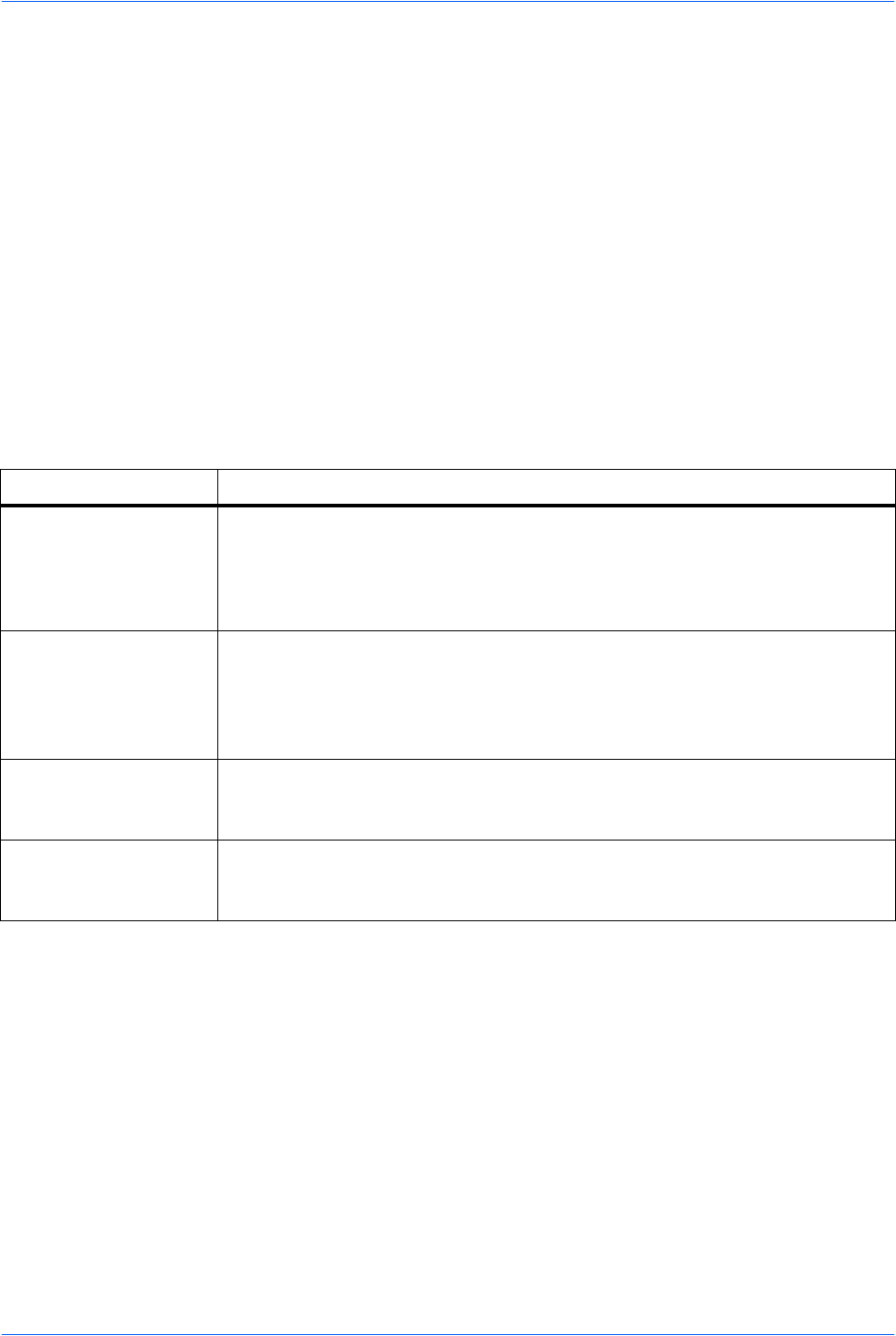
Using COMMAND CENTER
ADVANCED OPERATION GUIDE 8-19
Advanced > Protocols > TCP/IP > IP Filters
IP filters specify a host or network of hosts that are allowed to access the printing
system. An entry should be a network number or host IP address. Up to 10 access
list entries are allowed.
When there are no entries, access is allowed to all hosts.
To allow all hosts on network 192, enter 192.0.0.0 and 255.0.0.0.
To allow one host 192.168.1.2, enter 192.168.1.2. The default mask
255.255.255.255 is assumed and subnet mask can be left blank.
Advanced > Protocols > TCP/IP > Logical Printers
Logical Printers allows you to use this machine as four virtual printers.
Each logical printer can be used with either FTP, LPR, or IPP protocols. All printout
to a non-existent port will be accomplished to Logical Printer1.
Item Description
TCP/IP Port Number Specifies the IP address for the logical printer as well as the TCP raw port
number (9100, etc.). Conversion is applied to data that is input to the specified
raw port in accordance with the designated logical printer. This port is invalid if it
is given a port number that is the same as that of an already specified port (e.g.
FTP or LPD).
Bi-directional Printing Enables or disables bi-directional printing using the TCP/IP raw port. If you turn
this setting Off, all data received from the printer will be ignored.
In order to have the data that is received from the printer returned to the client
when printing with PostScript, PJL and other such commands, it is necessary to
enable bi-directional printing.
Start of Job Strings Specifies the character string sent to the printer before output directly to the
output port (lp port). Specifies the character string if it is necessary to transmit the
control code before printing.
End of Job Strings Specifies the character string sent to the printer after directly outputting to the
output port (lp port). Specify a character string, if it is necessary, to send a control
code after printing.
